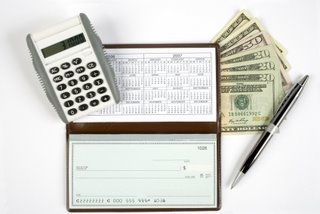
You knew the banks were going to keep looking for more ways to part consumers with their money. Added fees for checking accounts are one of the methods they’ve chosen.
One of their primary sources of added income is overdraft fees. Where once your check would have been marked “insufficient funds” and returned to the merchant, now banks will honor the check, and present you with a fee.
The average now is about $34, but some banks charge as much as $39. This can be pretty devastating for people on a limited income, especially since the typical check that causes an overdraft is about $20.
That these checks are typically low amounts attests to people being just a bit inaccurate in their accounting practices – not that they’re intentionally going over their balances.
Worse, when banks receive several checks on an account in one day, they can choose which to process first, and they generally choose the largest. Therefore, if a consumer had a $100 error in his checkbook and wrote a check for a $500 payment along with 3 checks totaling $65, processing that large check first could trigger three $39 overdraft charges as the smaller checks are posted. Now that $65 costs $182.
In an economy where jobs are falling away and consumers are struggling, banks know that these fees can push people over the edge. But they want to protect themselves, not consumers.
Overdraft fees aren’t the only changes. Some banks are now charging as much as $8.95 for monthly account maintenance, $10 to transfer money between accounts, higher fees on debit card withdrawals and on some debit card purchases, and fees to interact with a live teller.
Banks justify their higher fees by saying that in a troubled economy, with rising unemployment, consumers pose a greater risk. They need to collect those fees in response to the increased risk. They say this is “Only good business practice.”
Economists warn that these shark-like practices will only serve to undermine consumer stability and further weaken the economy. And consumers are justifiably outraged.
At a time when taxpayers were forced to hand over $700 billion to bail out the banks, citizens are feeling a bit like they’ve been slapped in the face.
This anger is fueled further by the banks’ refusal to grant loans to many creditworthy consumers, and reports of banks paying key employees bonuses in excess of a million dollars each.
No one can blame the average consumer if he lacks concern for banking industry profits.
FreeCreditScorequick.com your resource for free credit report offers and the most current information regarding credit news. We also provide free tips and techniques to repair your credit for free. “Remember your credit report and credit score is more important than ever now.”
